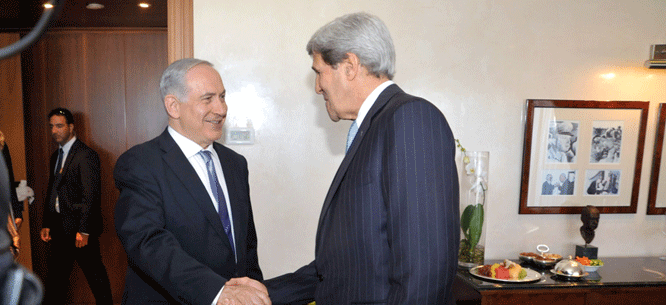Politics by Personality
Politics by Personality

July 10, 2013, Tel Aviv: Israel used to be a nation of political parties marked by hard-and-fast ideologies—but not so much today. Even the right’s toxic combination of religious zealotry and hard-edged cynicism has more to do with a mindset than with a clear set of beliefs.
The life of a party these days barely lasts past an election cycle or past the successor to a charismatic leader. Parties that appear to be the next big thing (like the centrist Kadima a short time ago) disappear before the next cycle. It is a profound shift: although the new parties are ostensibly created around an idea, in fact they are dependent for their voter base upon often a sole personality.
The latest examples of this are Yair Lapid’s Yesh Atid (“There is a Future”) party and Naftali Bennett’s Habayit Hayehudi (The Jewish Home) party, both of which captured so many votes in the last election. Both of these parties’ ideologies are best defined by their power bases, with heavy financial backing from business tycoons, by the force of their personality, and by a party constitution that sways heavily toward support for the party leader’s decisions. In each case, without these particular leaders, the party would collapse.
Yair Lapid’s party is especially dependent on how he performs as finance minister in the current government, as he designs a budget that is about to hit particularly hard on the very middle class that elected him. If he personally fails, his party fails, regardless of the fact that he has brought along with him some very talented and respected personalities.
Meanwhile, inside what used to be the two large ideological blocs—Labor and Likud—there is a different transformation that has left both parties essentially leaderless, at least for the moment. At last week’s party congress, sitting prime minister Bibi Netanyahu lost control of his own party, with right-wing factions more extreme than the right-wing PM taking control away from him. He was reportedly so embarrassed by the extreme choices for party secretary that he didn’t even bother to appear at his own party’s gathering, instead voting by email. Netanyahu now holds virtually no control over the Likud party apparatus.
For now, the opposition leader Shelly Yachimovitch is still in control of her party. But her leadership caused a dive for Labor in the last elections, and she has an increasingly unsettled grouping beneath her as several of her Knesset members –and others–vie for her position.
Yet, as politics has become personality in Israel, the largest personality—the prime minister—has an opening that he hasn’t had previously. Rumors abound here that Bibi wants to split—or split away from—Likud and form a centrist party to go to negotiations with the Palestinians. No one knows for sure—except Bibi himself, and perhaps his wife and one or two of his close advisers.
Therein lies the opportunity—and the problem. Unleashed by a party that has moved away from him, the prime minister has no playbook to follow. He can do whatever he chooses. And if past practice is any marker, Bibi Netanyahu makes decisions day-to-day, not long term and, so far, not for the history books. But with his changed situation, his search for a legacy, and the indefatigable efforts of U.S. Secretary of State John Kerry, he may just take the leap. It is plausible that he has internalized the urgency of the moment—if a two-state solution is not negotiated soon, it is difficult to imagine how it will ever materialize since the settlements keep expanding, largely under Bibi’s watch. More Palestinians will lobby for one state if they can’t achieve their own state separate from Israel.
Indeed, Bibi could—and should—declare himself a man without a party and move to negotiations as the head of government. A loose collection of individuals who are gathered into a myriad parties today comprise enough of a peace bloc to support him, including those inside and outside of his government. Then, as he has said he is wont to do, he can go to the Israeli public with a referendum on a deal to resolve the Israel-Palestinian impasse. It is likely that the shape of the deal will be the one that has been on and off the table for years now—the Clinton plan based on negotiating around the 1967 borders with land swaps, shared Jerusalem and agreement on refugees that will not change the status of the Jewish state. The vote will be as much about the present day leader of Israel as it will be about anything else.
Jo-Ann Mort is a member of the Dissent editorial board and vice chair of Americans for Peace Now, and writes frequently about Israel and Palestinian issues.






